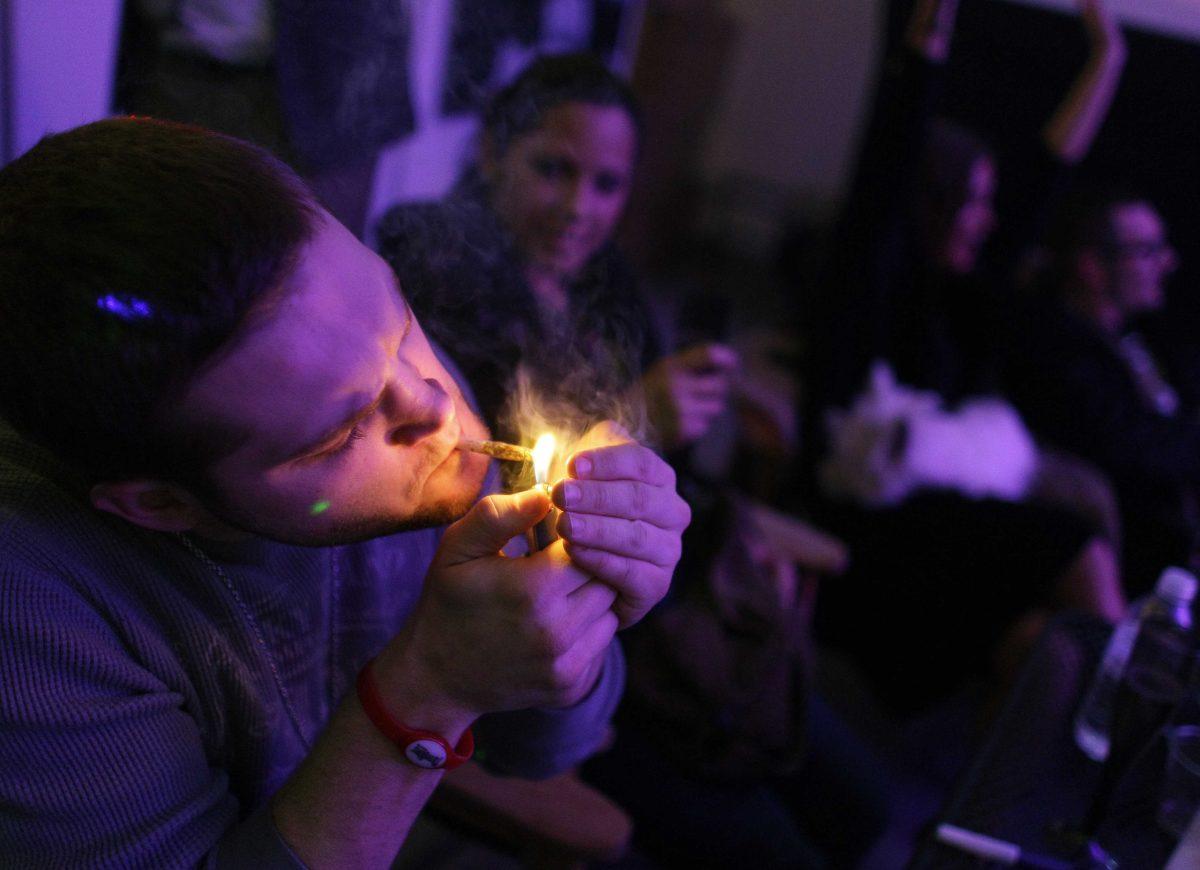Washington D.C., where you can see a lesbian couple lighting up a blunt while being married in front of the White House.
Well, maybe not every day.
Both medical marijuana and gay marriage have recently been legalized in the District of Columbia. The two policies, both of which are controversial in their own respects, seem to be going fine.
Most Americans probably aren’t aware that certain D.C. residents could smoke marijuana as they strolled down Pennsylvania Avenue as treatment for cancer or HIV, much the same as someone would smoke a cigarette.
As the nation’s capital, it should be expected that D.C. would be at the forefront of what some might call progressive changes. It’s the city that houses our federal government and also where hope goes to die.
But not in this case.
On a personal level, I’m excited that D.C. residents have taken to the polls to be some of the first in a long line of Americans who will adopt gay marriage and marijuana legalization in future years.
However, our federalist system of government confuses me. The United States is special, we have extraordinary girth and bravado. And perhaps as a result of every American believing his or her way is the correct way, the law has evolved differently everywhere.
OK, I can accept this. Different people have the right to make differing laws.
That being said, it begs the question: If something is legal at the Obama residence, why isn’t it legal for all Americans?
Issue one: marijuana legalization. There are more marijuana dispensaries in Colorado than Starbucks — fact. Despite the rough economy, people still buy drugs — fact.
The nation is trillions of dollars in the can. Regulate and tax marijuana like alcohol, or the Chinese will come break our collective knees.
Issue two: gay marriage. It’s the civil rights movement of the 21st century, albeit less violent in most cases, but nonetheless a fight for basic American liberties.
Twenty-five stunningly sculpted gay men are legally permitted to have massive, Greco-Roman style orgies and film them to make money off closeted pastors. Yet, two average, non-porn star homosexuals can’t tie the knot for fear of ruining the sanctity of marriage and perverting society?
D.C. is sin city, the white marble Vegas. What happens here, the intern will probably tell her parents.
The issue here really comes down to states’ rights, and in this case, districts’ rights.
Yes, it would be nice — not necessarily easy — for the federal government to legalize marijuana and gay marriage nationwide. And yes, after the subsequent nuclear war between North and South ends and the embers all burn out, we may still have a country left.
But the feds will never legalize anything cool all at once. It’s up to the states.
One by one, blue states are taking back statewide referendums from the Republicans, who have been using the states’ rights excuse to keep blacks, immigrants and gays at bay since the ‘60s.
So I challenge Louisiana, in all of her glory, to realize that tourism is a huge contributor to our economy, bringing in an estimated $5.2 billion annually.
Imagine walking down Bourbon, hand-in-hand with your gay lover, and after having just been married at Jackson Square, you’ve decided to stop by one of many coffee shops in the French Quarter, where selling small amounts of marijuana is now legalized and taxed, drawing thousands more to our great state.
Call it the Mardi Grass initiative. Reducing crime by eliminating the black market.
D.C. did it. Why can’t we?
Parker Cramer is a 21-year-old political science senior from Houston.





